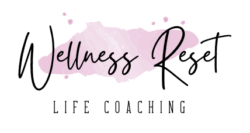Let’s talk about menopause in the workplace. A topic that makes many uncomfortable, but really shouldn’t. You see, menopause, often seen as a private and personal journey, can significantly impact every aspect of a woman’s life, including her career….
Menopause in the Workplace
The physical and emotional changes that accompany this natural phase can present unique challenges in the workplace. However, with awareness and strategic planning, you can not only navigate your work life during menopause but also thrive and emerge stronger.
But first, let’s look at the signs that menopause might be potentially affecting your career and work life so that I can provide you with valuable insights and practical tips to make this transition smoother.

Menopause in the Workplace: 10 Signs Menopause is Affecting Your Career
- Discomfort in the Workplace: Sudden and intense hot flashes can be not only physically uncomfortable but also emotionally distressing. If you find yourself experiencing these episodes during meetings or presentations, it can disrupt your focus and confidence at work.
- Feeling Tired in the Workplace: Menopausal symptoms such as night sweats and insomnia can lead to chronic fatigue. If you’re constantly tired, it can impact your productivity, concentration, and overall performance at work.
- Mood Swings at Work: Hormonal fluctuations during menopause can contribute to mood swings and irritability. If you’re finding it challenging to maintain a positive attitude or handle workplace stressors calmly, this could be a sign of menopause-related mood changes affecting your work relationships.
- Memory and Concentration Issues: Many women report difficulty with memory and concentration during menopause, often referred to as “menopause brain.” If you’re struggling to stay focused, organise tasks, or remember important details, it can hinder your effectiveness at work.
- Anxiety and Stress: Menopause can bring about heightened anxiety and stress levels. If you’re constantly feeling anxious about work tasks or overwhelmed by responsibilities, it may be linked to the hormonal changes associated with menopause.
- Reduced Productivity: A combination of physical symptoms, mood swings, and sleep disturbances can result in decreased productivity. You may find it challenging to accomplish your usual workload efficiently.
- Absenteeism or Presenteeism: You may be feeling the need to take more personal days due to severe menopausal symptoms, while others may try to push through but not perform at their best, a phenomenon known as presenteeism. Both can negatively impact your work life.
- Emotional Sensitivity: Menopause can heighten emotional sensitivity, making you more reactive to criticism or stressors in the workplace. Have you noticed more heightened reactions recently?
- Changes in Work Relationships: If you’re experiencing mood swings or irritability, it may affect your interactions with coworkers and supervisors. You might notice shifts in how you communicate or collaborate with your colleagues.
- Career Reflection: Menopause often prompts women to reassess their career goals and priorities. If you find yourself questioning your current role or contemplating a career change, it could be a sign that menopause is prompting you to seek new opportunities or challenges.
Not exactly a fun list of activities, right?
These signs of menopause affecting your work life can indeed evoke a mix of negative feelings such as frustration, stress, or self-doubt, but they can also signal a time for positive change and growth.
The key lies in how you choose to address and manage these challenges!
I’ve gathered valuable tips and insights to help you not only navigate the potential pitfalls but also harness the opportunities for personal and professional development that menopause can bring.
By understanding and proactively addressing these signs, you can transform your Menopause in the workplace into a period of empowerment, self-discovery, and resilience, ultimately emerging from menopause stronger and more confident than ever before.

10 Tips for Navigating Menopause in the Workplace
Open Communication
The first step in navigating menopause at work is open communication. Sharing your experience with your supervisor or HR department can help create a supportive environment. Remember that menopause is a natural part of life, and many women go through it. By sharing your needs and concerns, you can ensure that your workplace is aware of your situation and can provide necessary accommodations or flexibility.
Self-Care
Prioritizing self-care is essential during menopause. This means taking care of your physical and emotional health both in and out of the workplace. Regular exercise, a balanced diet, and mindfulness practices like yoga or meditation can help alleviate some of the symptoms associated with menopause. When you feel good physically and mentally, your work performance is likely to improve.
Recommended: 7 Steps to Menopause Self-Care
Manage Symptoms Effectively
Some menopausal symptoms can be managed effectively with lifestyle changes or medical interventions. For example, if hot flashes are disruptive at work, consider dressing in layers and keeping a fan at your desk. If sleep disturbances are affecting your productivity, consult with a healthcare provider for potential solutions.
Recommended: Get my FREE GUIDE to conquering Menopause Anxiety
Seek Support
You don’t have to navigate menopause in isolation. Seek support from colleagues or friends who have gone through it or join menopause support groups both online and offline. Sharing experiences and coping strategies can be incredibly empowering.
I run the ‘Embracing the Change’ Facebook group which you’re invited to join here. Inside this private and safe group, I help women release their menopause anxiety so that they can feel confident again.
Alternatively, working with a therapist or a life coach who specializes in menopause, such as myself, is a great way to receive professional and expert guidance and support.

Prioritize Rest
Sleep disturbances are common during menopause, and sleep deprivation can significantly impact your work performance and overall well-being. Prioritize getting enough rest, and if necessary, discuss flexible work hours or remote work options with your employer.
Embrace Mindfulness
Mindfulness practices, such as deep breathing exercises or meditation, can help you manage stress and anxiety associated with menopause. Incorporating short mindfulness breaks into your workday can improve your focus and emotional well-being.
Advocate for Yourself
Your needs matter, and it’s crucial to advocate for yourself in the workplace. If you require accommodations or adjustments to your workload due to menopause-related symptoms, don’t hesitate to request them. A supportive work environment should be willing to accommodate your needs.
Menopause Education
Educating yourself about menopause and its effects on the body and mind can be empowering. Understanding what you’re experiencing can help you take control of your health and make informed decisions about managing symptoms.
Consider Hormone Replacement Therapy (HRT)
Hormone Replacement Therapy (HRT) is a medical option that can help alleviate severe menopausal symptoms. If your symptoms are significantly affecting your work and quality of life, consult with a healthcare provider to discuss whether HRT is a suitable option for you.
Career Reflection
Menopause can also be a time for career reflection. It’s an opportunity to reassess your goals and priorities. Some women find that they want to pursue new career paths or take on new challenges during this transformative phase. Why not book a call with me to discuss what your next steps are.
Recommended: 25 Journal Prompts for Women in Midlife

Navigating menopause in the workplace is a journey that requires self-awareness, open communication, and self-care. By taking proactive steps to manage your symptoms, seeking support, and advocating for your needs, you can thrive in your career while embracing the transformative power of menopause.
Remember, menopause is not a hindrance but a milestone on your life’s journey, and with the right mindset and support, you can emerge from it stronger and more empowered than ever before.
Need Further Support?
Struggling with menopause in the workplace? Is menopause affecting other areas of your life?
Why not join my free support group? I run the ‘Embracing the Change’ Facebook group. Inside this private and safe group, I help women release their menopause anxiety so that they can feel confident again.
Alternatively, if you’re seeking 1:1 professional support, you can book your free discovery call here. Let’s chat about your next steps.


